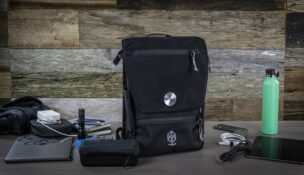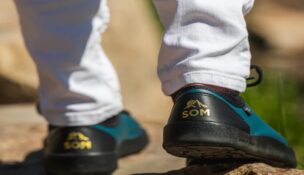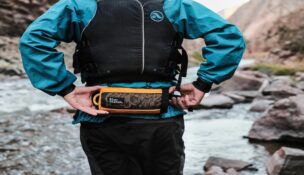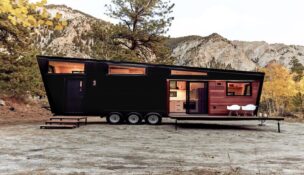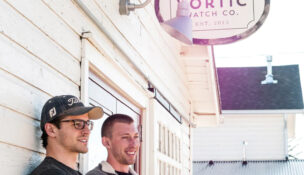Made in Colorado 2017: The Denver Boot: Maybe the most hated Colorado-made good
Clancy Systems International acquired the wheel clamp originally made by a symphony violinist
Eric Peterson //March 6, 2017//


Made in Colorado 2017: The Denver Boot: Maybe the most hated Colorado-made good
Clancy Systems International acquired the wheel clamp originally made by a symphony violinist
Eric Peterson //March 6, 2017//

Product: Denver Boot | Made in: Englewood | www.clancysystems.com www.denverboot.com
Frank Marugg was a violinist in the Denver Symphony Orchestra (a predecessor to the Colorado Symphony) before he made an everlasting mark on parking enforcement with the invention of the wheel clamp, better known as the Denver Boot. "He was a patternmaker and he even made his own violin," says Clancy Chief Financial Officer, Liz Wolfson.
Marugg invented the Denver Boot in 1944, and the Denver Police Department was his first customer in the mid-1950s. Other cities quickly took note of how well it worked getting scofflaws to pay parking tickets, and Marugg sold about 2,000 clamps by 1970.
Arguably, it's since become the most famous Denver product this side of the omelet.
It's made appearances on "The Simpsons," "South Park," and "Law & Order." There's even one on display at the Smithsonian Institution today.
Founded in 1985, Clancy Systems acquired the rights to the Denver Boot in 1990. The company's primary product is a handheld electronic ticket issuance device, but the company wanted the wheel clamp to complement its higher-tech offerings. "They're old-fashioned technology," says Wolfson. "They're poured in a foundry."
Now manufactured on contract by J.W. Reffel Metal Foundry in Englewood, the Denver Boot is forged from tenzaloy, an aluminum alloy that's lightweight and rust-proof. Sold for $290 to $350, the product has allowed Clancy to cover all the bases in parking enforcement.
The Denver-based company modified it to fit larger, more modern cars, and soon found a new market in security. "Along came the year 2000, and we probably got hundreds of phone calls from people with power generators," says Wolfson. Those people – and others with any valuables on wheeled trailers – wanted Denver Boots as theft deterrents in case the Y2K bug brought civilization to its knees.
But most Denver Boots – Clancy sells about 500 units a year – still go to cities looking for a better return on parking citations. "It's hugely effective," Wolfson touts. "Once a boot is put on a car with parking tickets, the gig is up. There's a side effect to it: It brings out some pretty colorful language."
Her advice:







